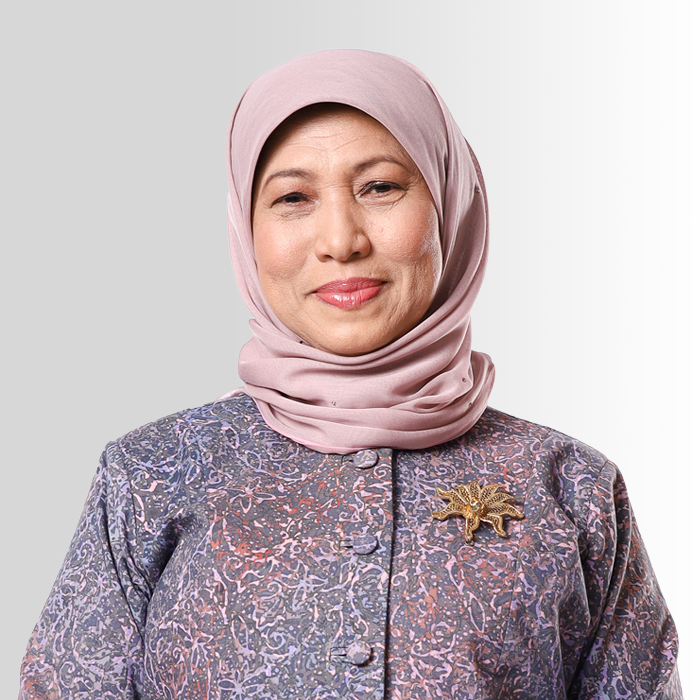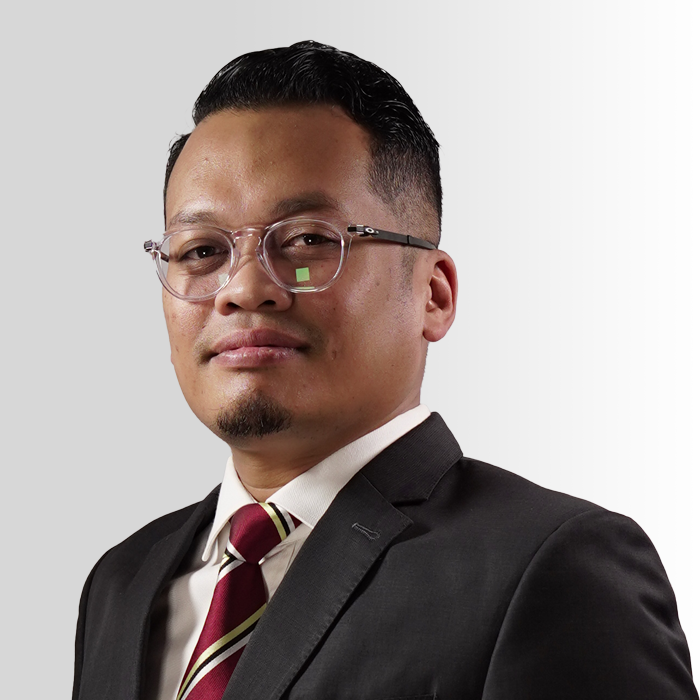About PRAXIS
PRAXIS is ISIS Malaysia’s flagship conference directed at policymakers and decision-makers. Its central tenet is translating theory and knowledge into practice. We do this by shaping and developing better policy ideas towards actionable solutions.
This year’s theme, Advancing Malaysia’s Strategic Interests, explores the unprecedented challenges that our nation faces as we commemorate the 60th anniversary of its formation.
As an open trading economy, Malaysia must meet these challenges to safeguard itself. PRAXIS 2023 delves into four pressing challenges to nation-building, development and wellbeing, including food security, the care economy, semiconductor industry and climate resilience. Join us and be part of the policymaking process.
Media
Welcoming and closing remarks by Prof Dr Mohd Faiz Abdullah, ISIS Malaysia chairman, and keynote addresses by YB Dato’ Sri Hajah Nancy Shukri, Minister of Women, Family and Community Development, and YB Nik Nazmi bin Nik Ahmad, Minister of Natural Resources, Environment and Climate Change.
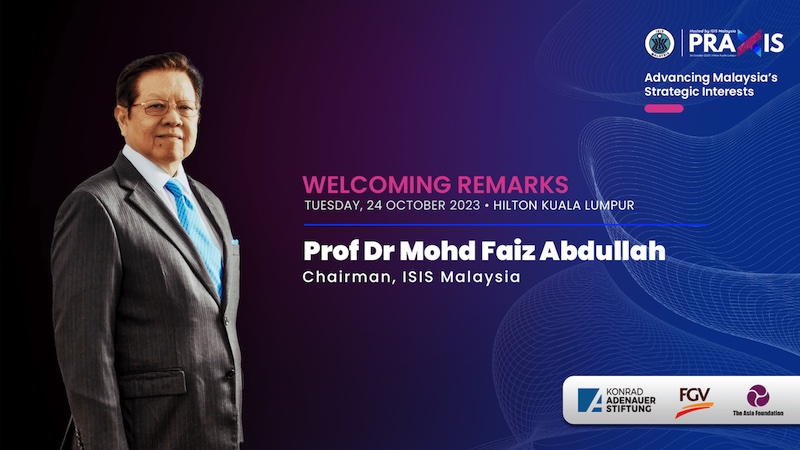
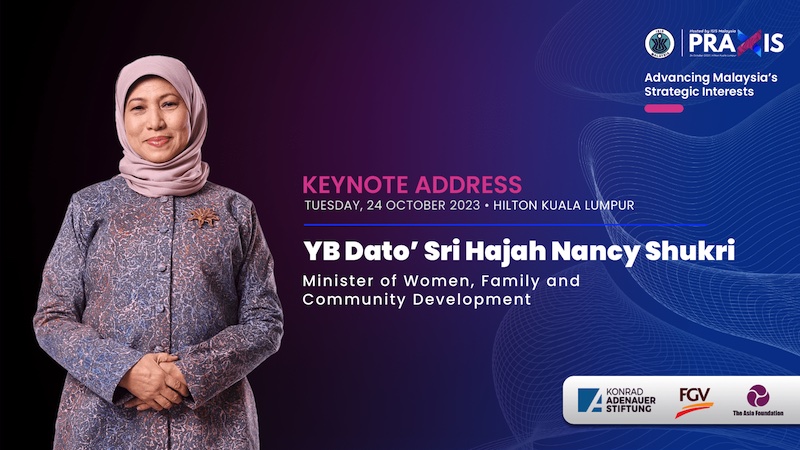
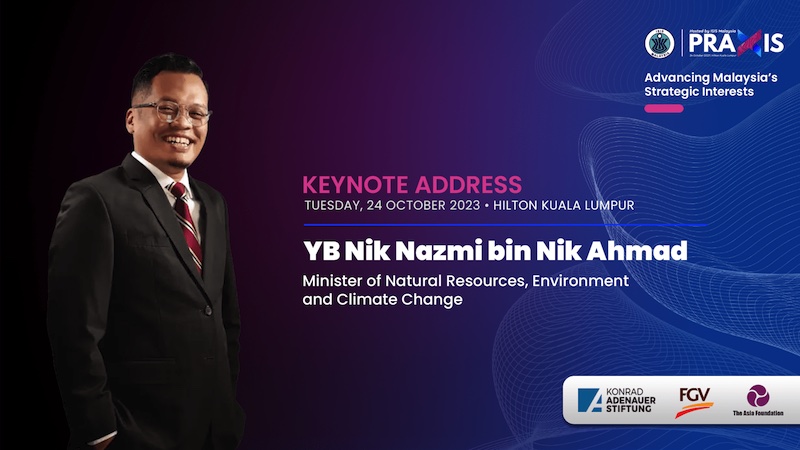
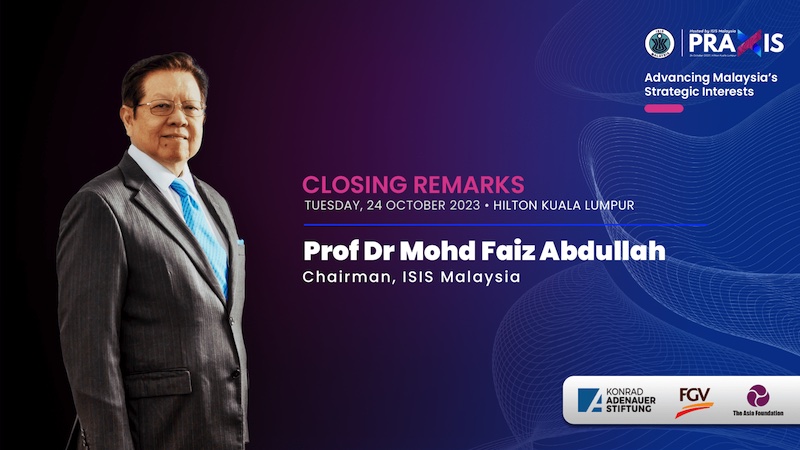
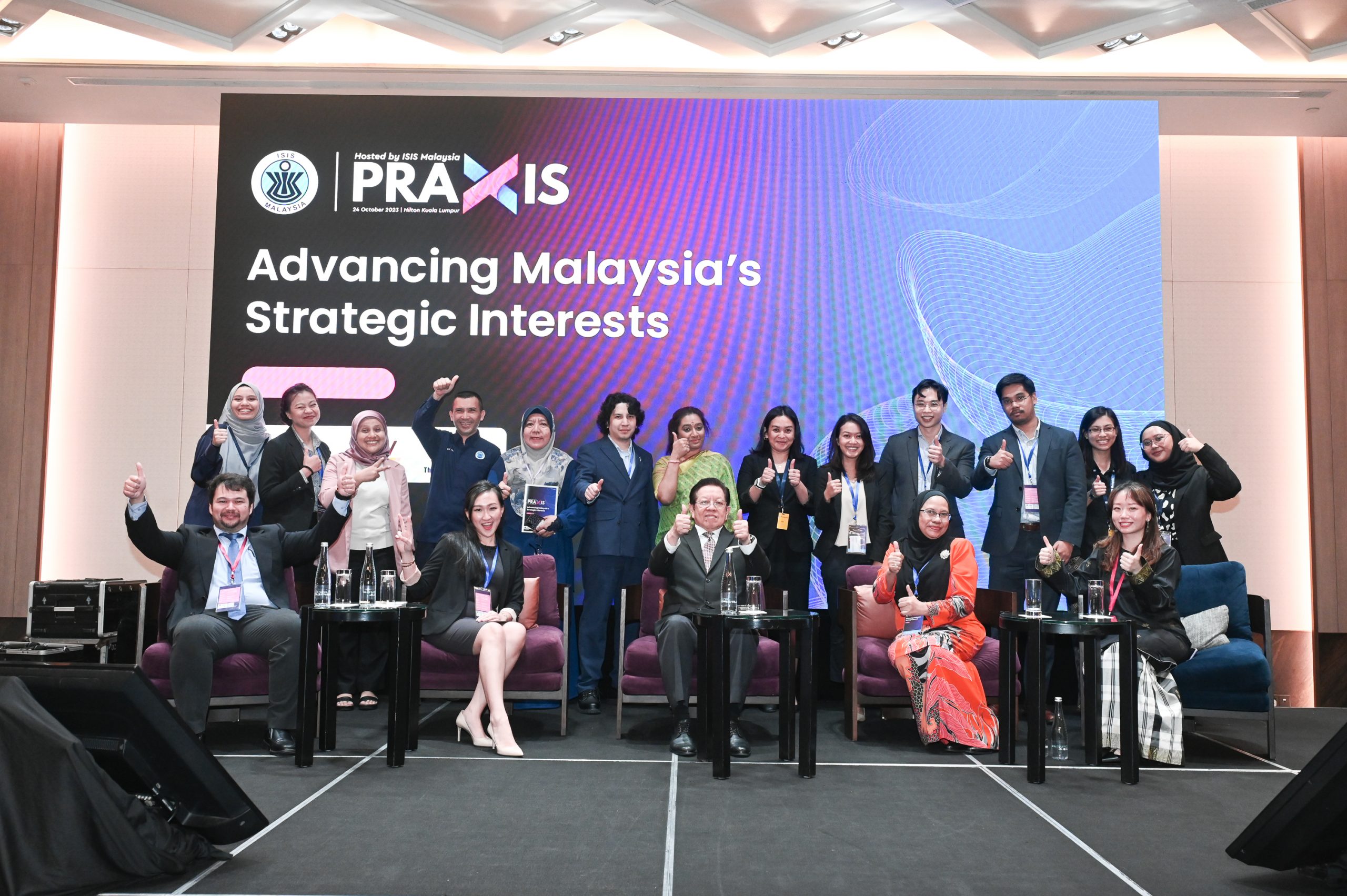
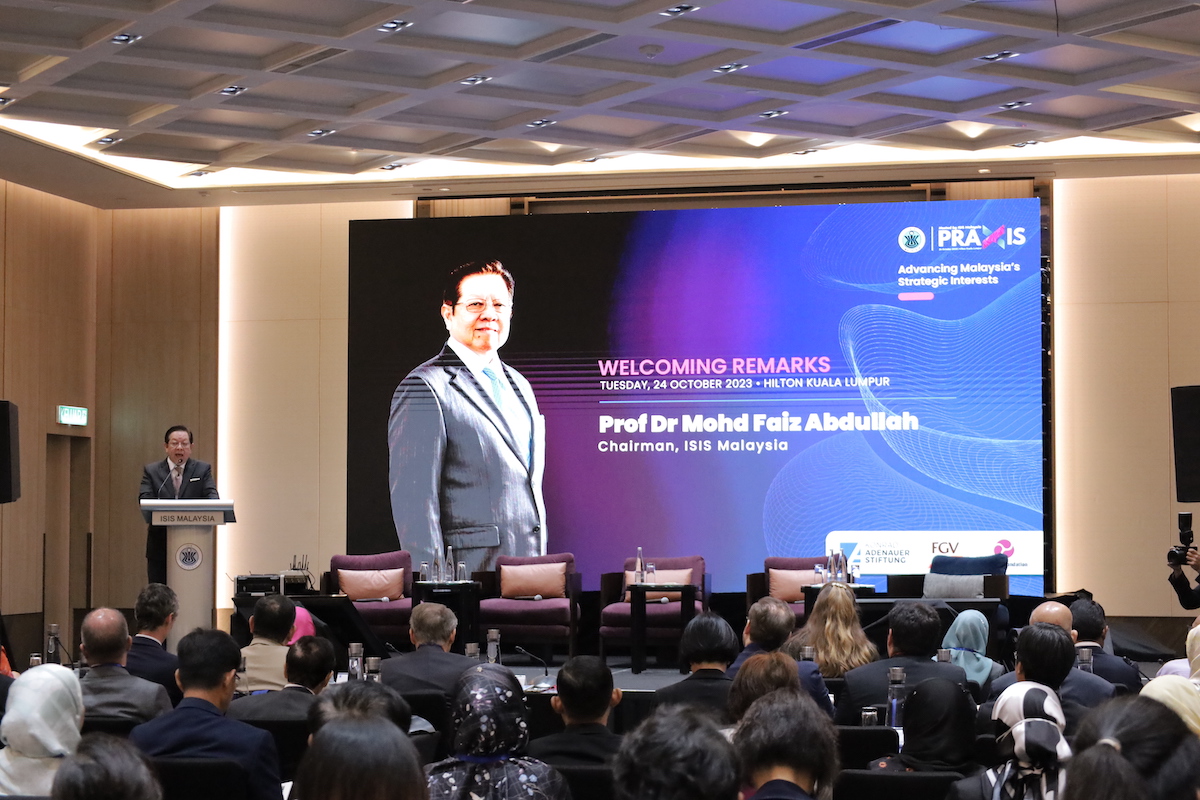
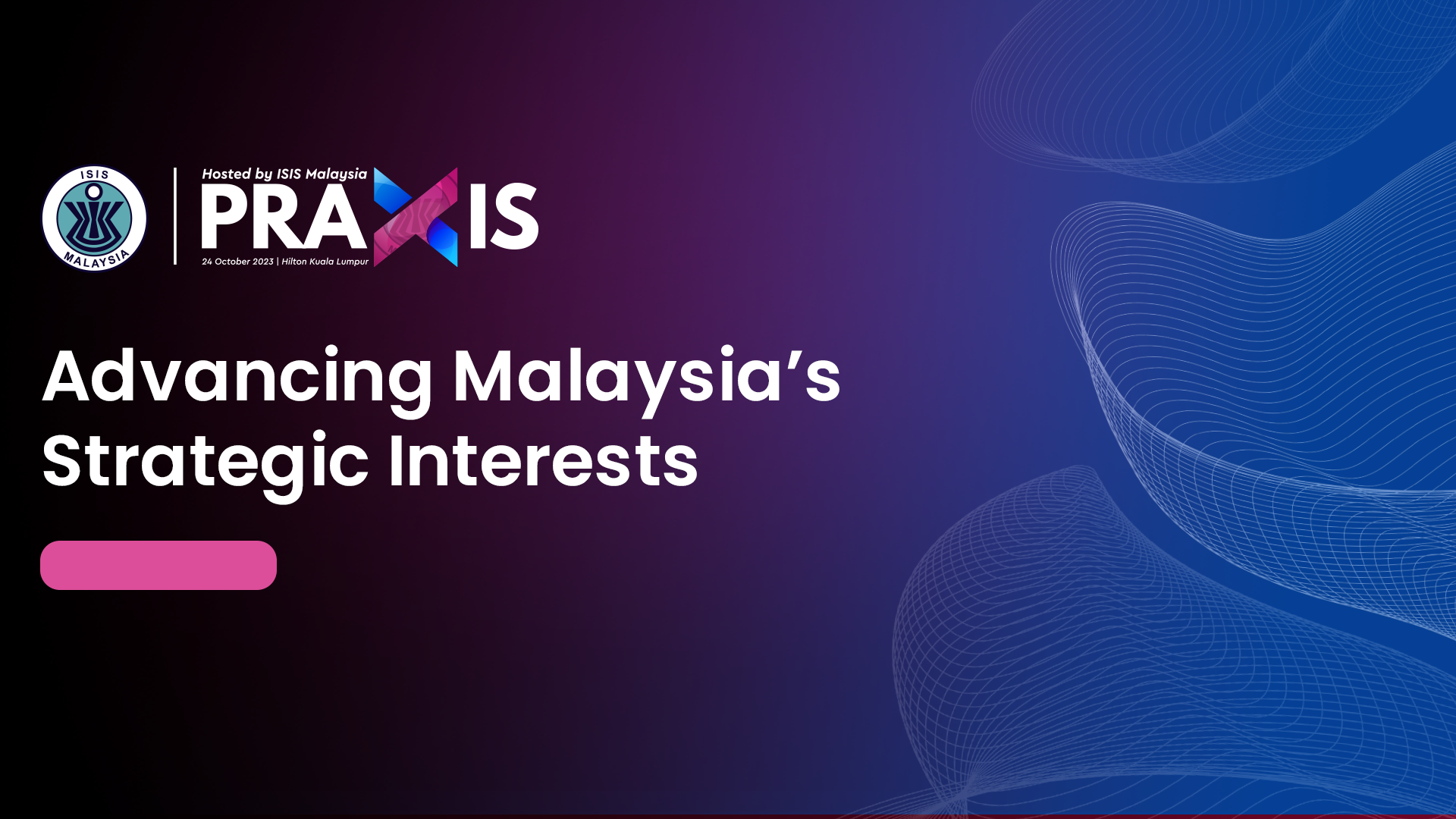
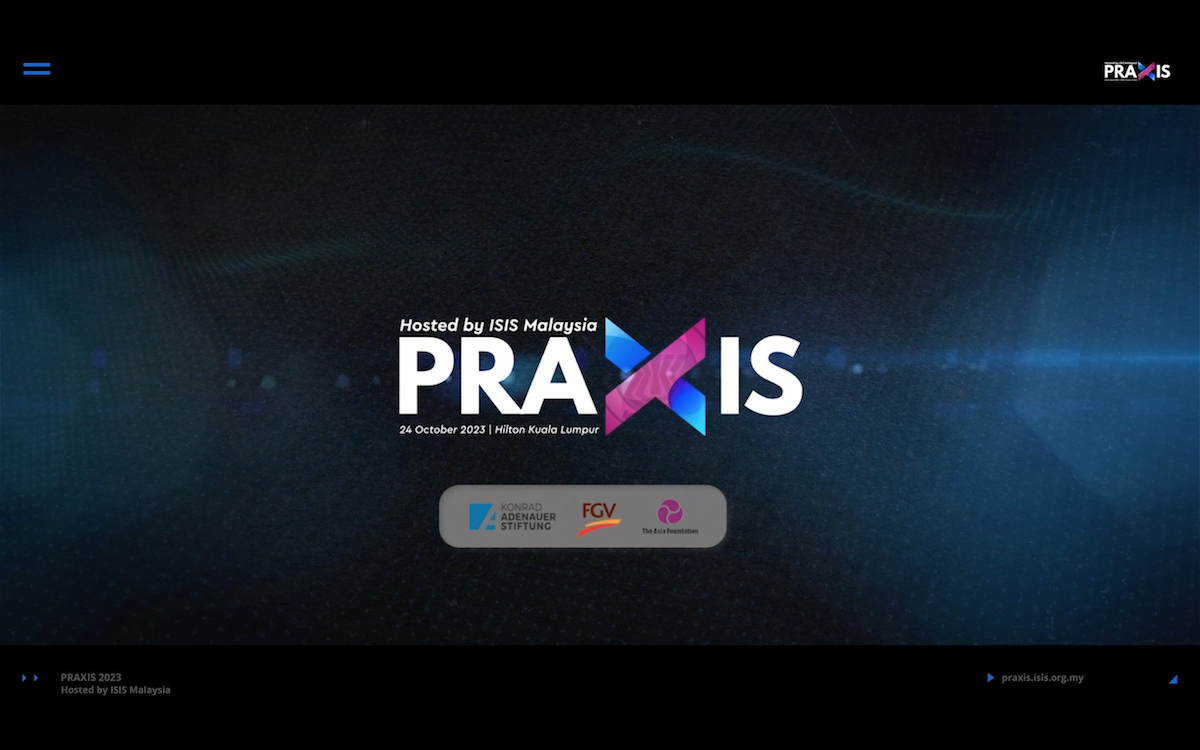
Keynote speakers
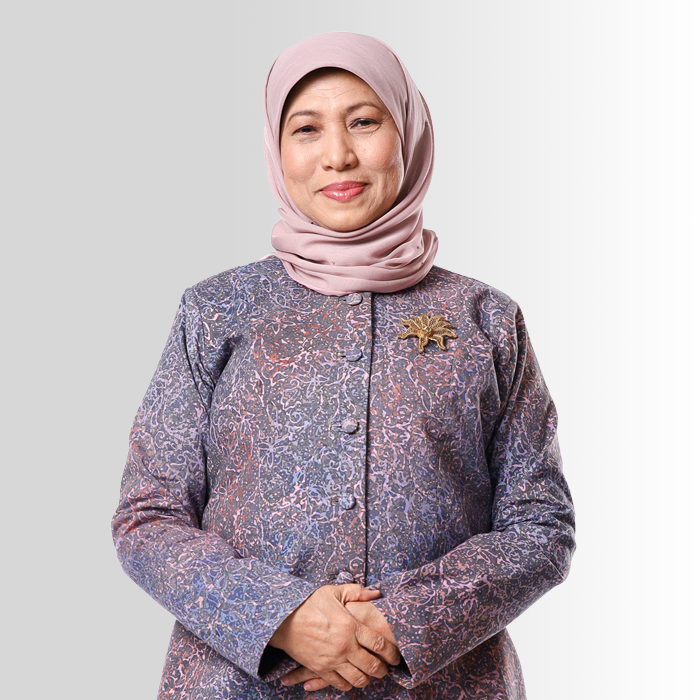
YB Dato’ Sri Hajah Nancy Shukri
Minister of Women, Family and Community DevelopmentDato’ Sri Nancy Shukri is the longest-serving female federal minister from Sarawak. She is the Santubong MP and has more than 15 years’ experience as an elected representative. She was the MP for the Batang Sadong constituency from 2008 to 2022. She has served as minister in the Prime Minister’s Department; law minister (2013-2016); Land Public Transport Commission (SPAD); Malaysian Industry-Government Group for High Technology (MIGHT); National Agency (AIM); and Malaysia Nuclear Power Corporation (MNPC). Her tenure as tourism minister in 2020 coincided with the onset of the Covid-19 pandemic, a position she embraced with compassion and leadership. A strong advocate for women and human rights, she led the Women Parliament Caucus from 2008 to 2012 and is currently an adviser to the Women Visionary Entrepreneurs Association (Saranita).
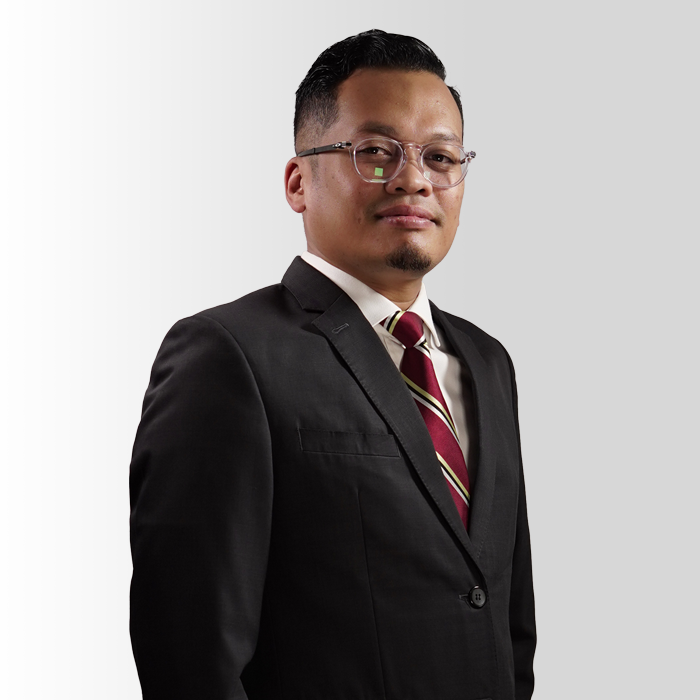
YB Nik Nazmi bin Nik Ahmad
Minister of Natural Resources, Environment and Climate ChangeNik Nazmi is the Setiawangsa MP. He is a former Selangor exco member; deputy speaker of the Selangor assembly; and Seri Setia assemblyman. He has also served as chairman of the Defence and Home Affairs Select Committee and political secretary to the Selangor menteri besar. Nik Nazmi was appointed to his current ministerial post in December 2022 and 40, he is the second youngest full cabinet member serving the Anwar Ibrahim cabinet. The present ministry is a combination of two previous ministries: Energy and Natural Resources; and Environment and Water. One of his early landmark policies was the introduction of a climate policy that not only focuses on climate mitigation but also climate adaptation and resilience.
Lead experts
Economic security

Dr Larry Wong
Senior Visiting Fellow , ISIS MalaysiaDr Wong’s key areas of expertise are food security, agro-food supply/value chains, public-private partnerships in agriculture, rural development, regional integration and sustainable development. He has held senior positions in the Malaysian Agricultural Research and Development Institute (Mardi) and the Economic Planning Unit (EPU). He is also senior adviser to the Myanmar Rice Federation, visiting senior research fellow of Myanmar’s Centre for Economic and Social Development, Asia-Pacific Agricultural Policy Forum board member and member of the editorial advisory board for the Asian Journal of Agriculture and Development.
Social
security
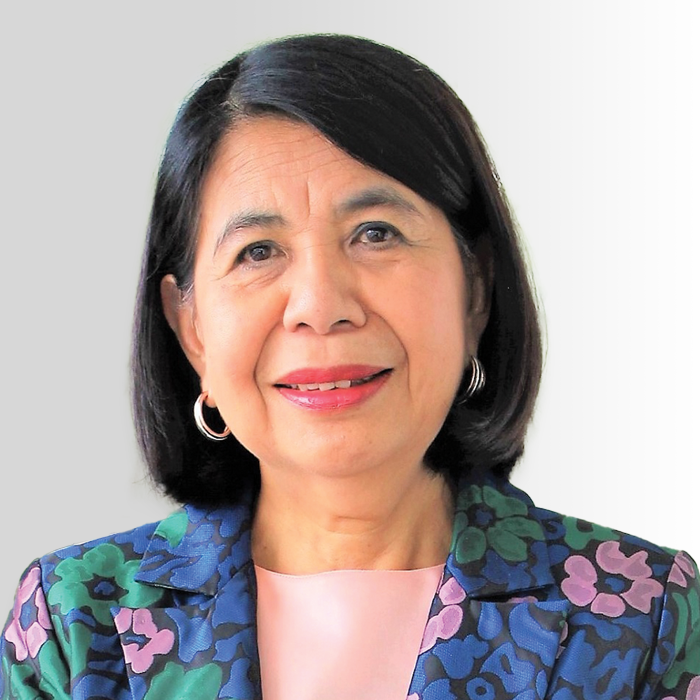
Prof Datuk Dr Norma Mansor
Director, Social Wellbeing Research Centre (SWRC), Universiti MalayaProf Norma has held the SWRC director post since 2013. She has served as an adviser and consultant to various organisations, including the United Nations Development Programme, World Bank, International Labour Organisation, Organisation for Economic Cooperation and Development, European Union, Asian Development Bank and numerous Malaysian public agencies. She is also the author of numerous books and journal articles on public and social policy, aging and social protection. She is a fellow of the Academy of Sciences Malaysia and president of the Malaysian Economic Association.
Technology security
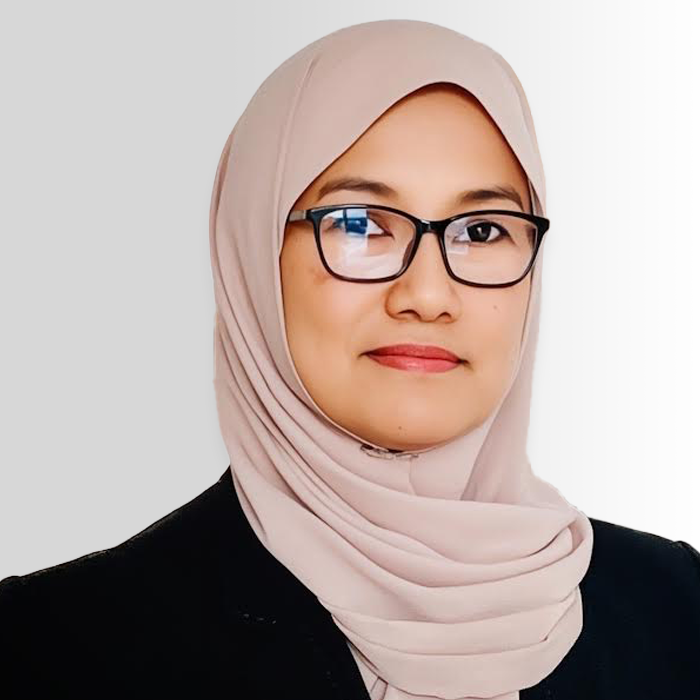
Dr Sharbanom Abu Bakar
Independent Non-Executive Director, AFFIN Islamic Bank BerhadDr Sharbanom is a former lead consultant to the UNDP for the development of Malaysia’s SDG investors’ map, which was launched in June 2023. While in the UK, where she obtained a PhD, she was involved in the UKCITE (UK Connected Intelligent Transport Environment) consortium, where she evaluated technologies for the connected and autonomous vehicles (CAV) and explored their implications for existing infrastructure, regulations and environment. She has also worked at IBM Malaysia, where she was seconded to the Ministry of International Trade and Industry to manage projects under the Economic Transformation Programme.
Environmental security
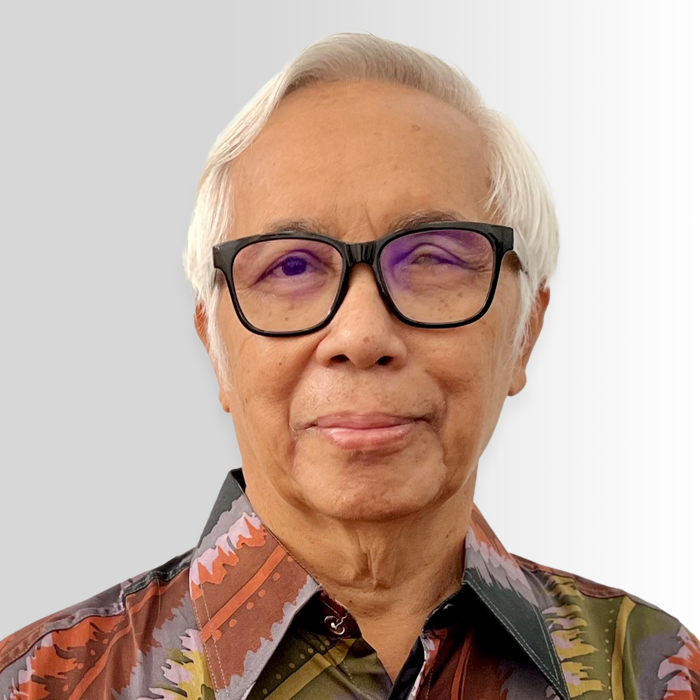
Prof Emeritus Tan Sri Dr Zakri Abdul Hamid
Tun Hussein Onn Chair , ISIS MalaysiaTan Sri Zakri is the chairman of Atri Advisory, a consultancy company advising governments, regional bodies and international organisations on science, technology and innovation for sustainable development, the governance of biodiversity and science diplomacy. He is currently pro-chancellor of Multimedia University and Universiti Perguruan Sultan Idris. He is a senior fellow of the Academy of Sciences Malaysia and sits on the National Climate Change Action Council and National Science Council, both chaired by the prime minister.
Speakers
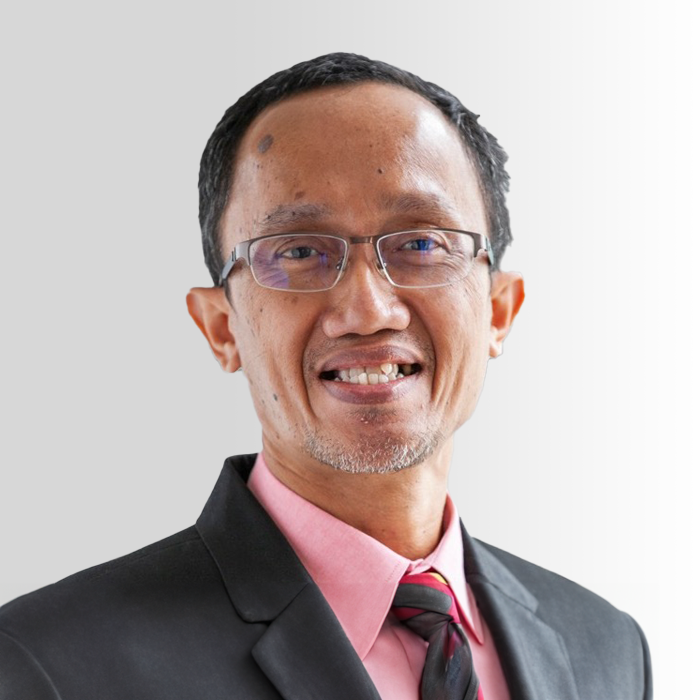
Ahmad Ikram Abdullah
Senior Policy Advisor, The Asia Foundation (TAF)Ji joined TAF Malaysia in 2021 where he is also the lead for the Australia-Malaysia Reform Partnership (AMRP) programme, which advocates for reform in the areas of green economy, care economy and creative economy. Ji’s previous assignments include consultant with an international development organisation, CEO of the Terengganu Strategic and Integrity Institute, vice-president (communications and branding) at SME Bank and government relations adviser at ExxonMobil.
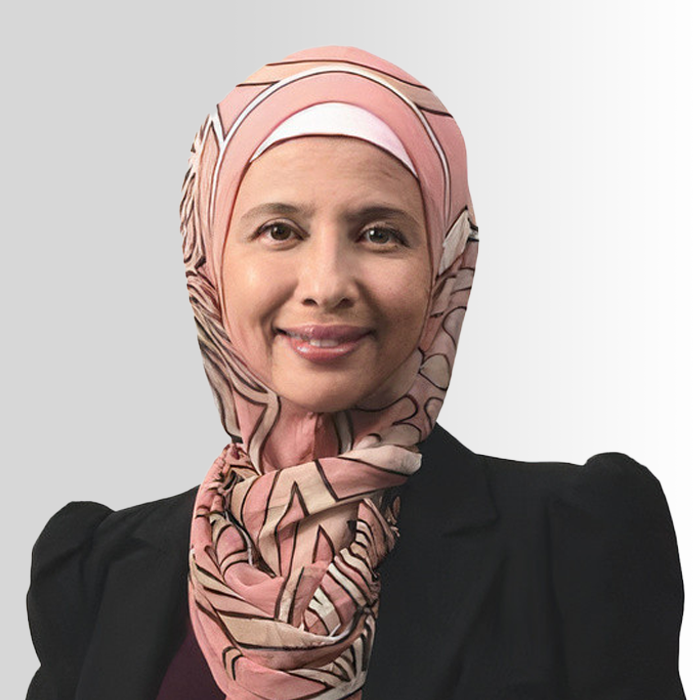
Balqais Yusoff
Head of Department (Strategy Management), Employees Provident Fund (EPF)As head of the EPF’s Policy and Strategy Department, Balqais has been part of the social-protection realm for almost a decade. Prior to joining EPF, she led the corporate-planning outfit of a public-listed supply chain organisation. Balqais has more than 20 years’ experience in banking, public services and consultancy.
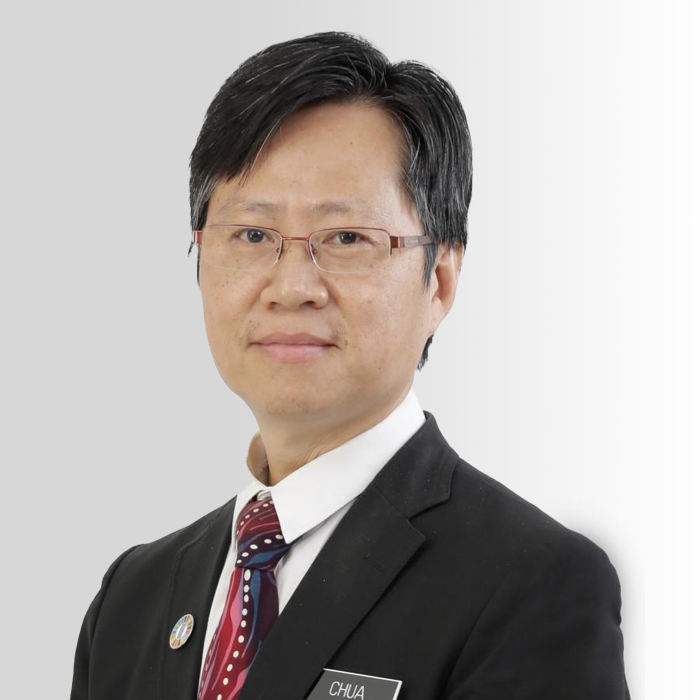
Chua Choon Hwa
Deputy Secretary-General (Strategic), Ministry of Women, Family and Community DevelopmentChua is career civil servant, having joined the service in 1996. He was posted to the ministry’s policy division as principal senior assistant secretary in 2019, allowing him to join various national and international forums, including the 22nd session of the Human Rights Council in Geneva and the 46th session of the United Nations Commission on Population and Development in New York. In 2013, Chua was promoted to deputy undersecretary and his portfolio expanded to involve other target groups in the ministry, namely the disabled, older persons, homeless and vulnerable groups. As deputy undersecretary, he led the formulation of the Child Online Protection Action Plan and tabled the 2001 Child Act amendment. He assumed the present role in May 2022.
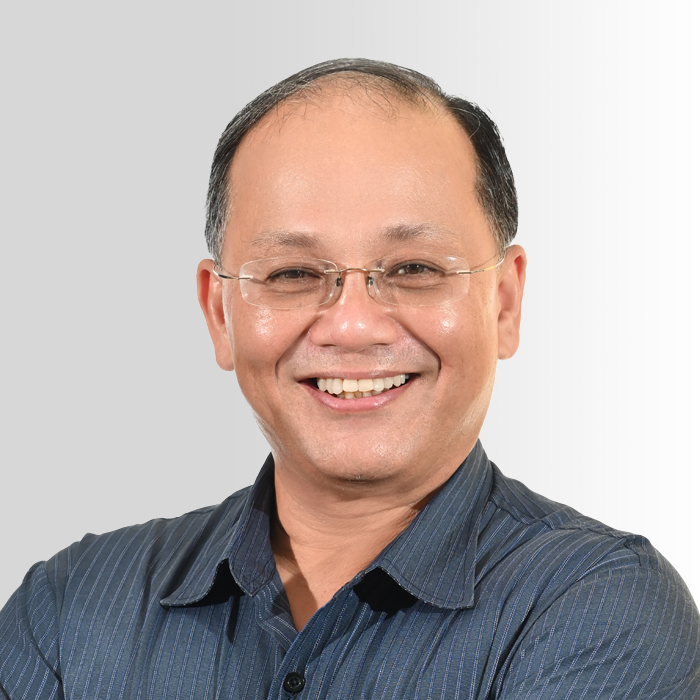
Datuk Darrel Webber
Climate Adviser to Sabah governmentDatuk Darrel is also executive adviser to the Sabah Jurisdictional Approach to Sustainable Palm Oil and senior adviser to Earth Innovation Institute, San Francisco, among others. He is a firm believer that for effective change to happen, the Global South must lead the discussions on both sustainable development and climate change. He is working towards building a model sustainable farm and promote responsible angling. He is the former CEO of the global multi-stakeholder sustainability initiative, the Roundtable on Sustainable Palm Oil (RSPO). Prior to that, he worked in international non-profits, the oil and gas industry and the consumer goods industry.

Eng Seng Meng
Senior Vice President & Managing Director, Infineon TechnologiesEng has more than three decades of semiconductor industry experience. He served Infineon Technologies in various top management roles, such as managing director of the Wuxi site in China and more recently, senior vice-president and global head of industrial engineering in Singapore. He has a track record of leading large and global organisations, with expertise in operation management, site management, industrial engineering and Industrial 4.0 transformation. Eng is a board member of the Malaysia Semiconductor Industry Association.
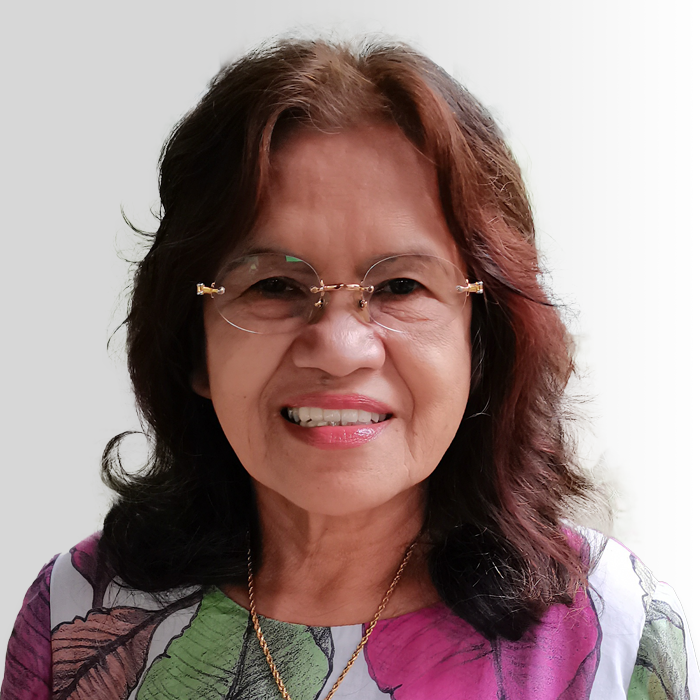
Prof Datin Paduka Dr Fatimah Mohamed Arshad
Research Fellow , Universiti Putra Malaysia (UPM)Prof Fatimah has been a member of the National Agriculture Advisory Council, Ministry of Agriculture and Food Industry (renamed Ministry of Agriculture and Food Security in 2023) since 2018. Her research areas include agricultural marketing and economics issues, policy analyses, and agricultural market structure, conduct and performance. She has done numerous policy studies particularly on the role of agricultural subsidies and incentives in the padi and rice industry, food security, agricultural cooperatives, food supply chain and marketing, price analyses, and commodity and agricultural sector modelling.

Lee Min Hui
Analyst, ISIS MalaysiaMin Hui’s research focuses on issues related to social inclusivity, in particular women’s representation and gender equity, social protection, and urban poverty and planning. She has written and published on gender-responsive labour market reforms, the care economy and affordable housing. As the research manager for PRAXIS 2023, Min Hui led the strategy and direction of the conference. She was an external affairs analyst at the World Bank in Malaysia, bringing to the table experience in strategic communications and knowledge management.
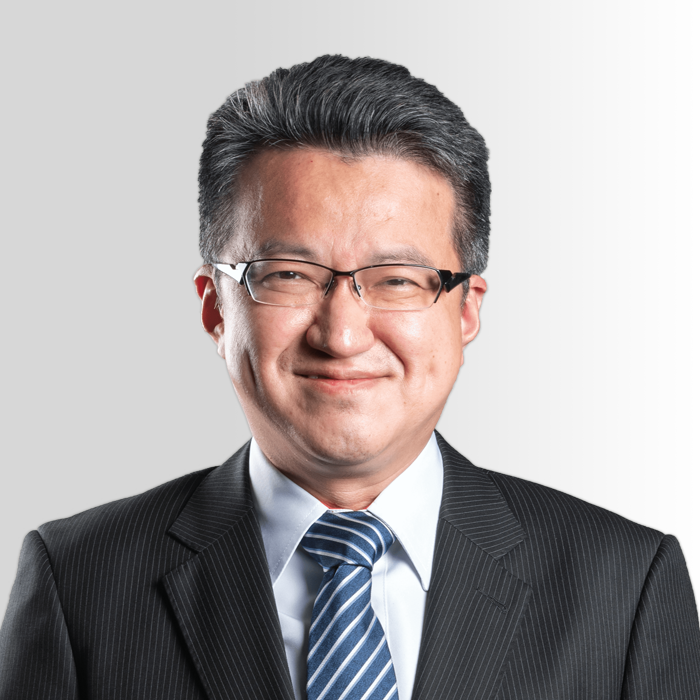
YB Liew Chin Tong
Deputy Minister, Ministry of Investment, Trade and Industry (MITI)YB Liew is the Iskandar Puteri MP and Perling assemblyman. He was a senator and served as deputy defence minister from July 2018 to February 2020 where he supported former defence minister Mohammad Sabu’s efforts to present Malaysia’s first Defence White Paper, which was passed in Parliament on 2 December 2019. He is passionate about policies relating to the economy, defence and security, institutional reform, political Islam, security and international relations, and urban studies.

Dato’ Lim Yong Jin
Vice President, Malaysia Semiconductor Industry Association (MSIA)Dato’ Lim is the former regional president of Plexus Corporation, a US-based electronic manufacturing service (EMS) company. He served Plexus from 2007 to 2021, and has also worked in various industries, such as semiconductors, hard-disk storage and medical.

Dato’ Mohd Nazrul Izam Mansor
Group CEO , FGV Holdings BerhadDato’ Nazrul has more than 25 years of diverse industry experience. He held prominent leadership roles as GCEO of Felcra Bhd; managing director of Teras Dara Konsortium Sdn Bhd; director of finance at N.U.R Power Sdn Bhd, group CFO of RealMild Sdn Bhd; and head of structured business in MBSB Sdn Bhd. He is a chartered accountant, a member of the Malaysian Institute of Accountants, and fellow certified practising accountant of CPA Australia.
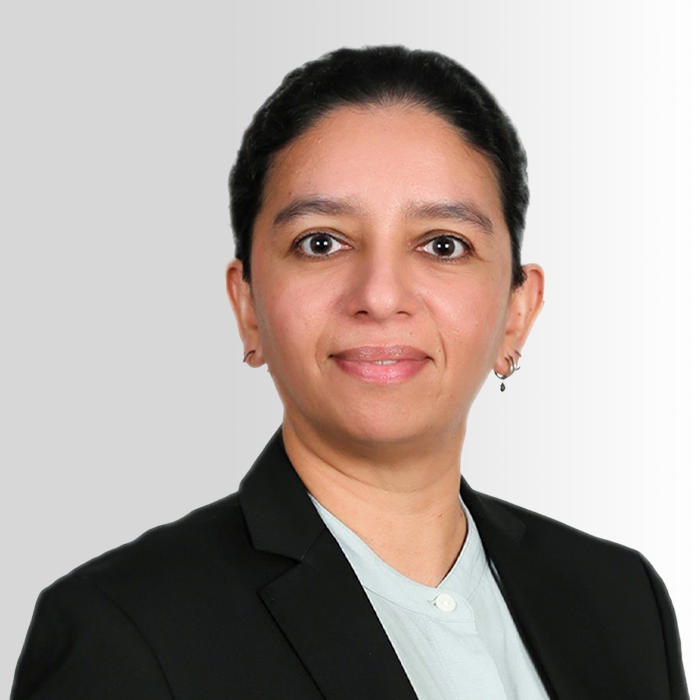
Nosrat Ravichandran
Malaysia Country Lead, Lestari CapitalNosrat leads the overall development and implementation of Lestari Capital’s project portfolio and partner engagements in Malaysia. She has more than 18 years’ experience in biodiversity conservation, corporate communications, ecotourism, wildlife and protected-area management. She has served at the Department of Wildlife and National Parks and the Asean Centre for Biodiversity in the Philippines to implement conservation projects with public and development funds. She has worked at the site level with communities and rangers up to the policy level with Asean officials.
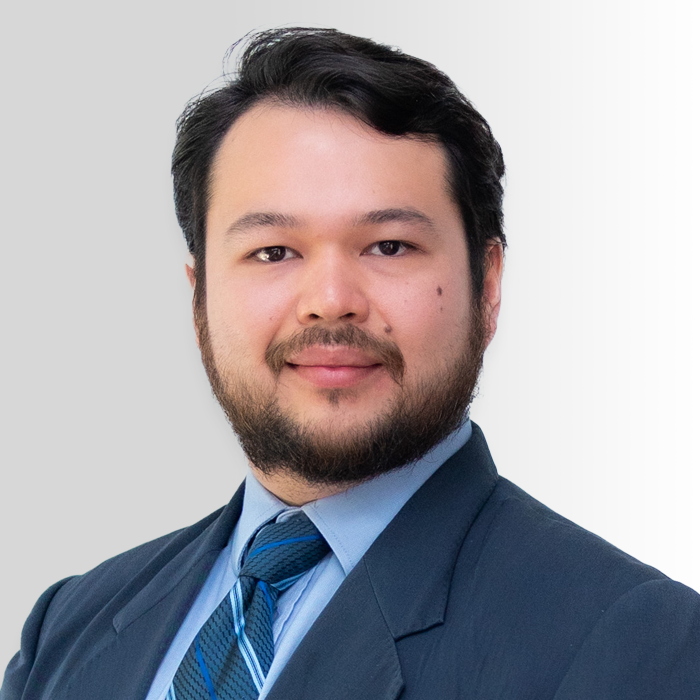
Qarrem Kassim
Analyst, ISIS MalaysiaQarrem’s research focuses on critical areas, such as industrial policy, SME development and institutional economics. With a background as a consultant specialising in economics and public policy planning in the fields of entrepreneur and industrial development, he brings expertise to shaping strategies and policies that aim to foster sustainable economic growth.
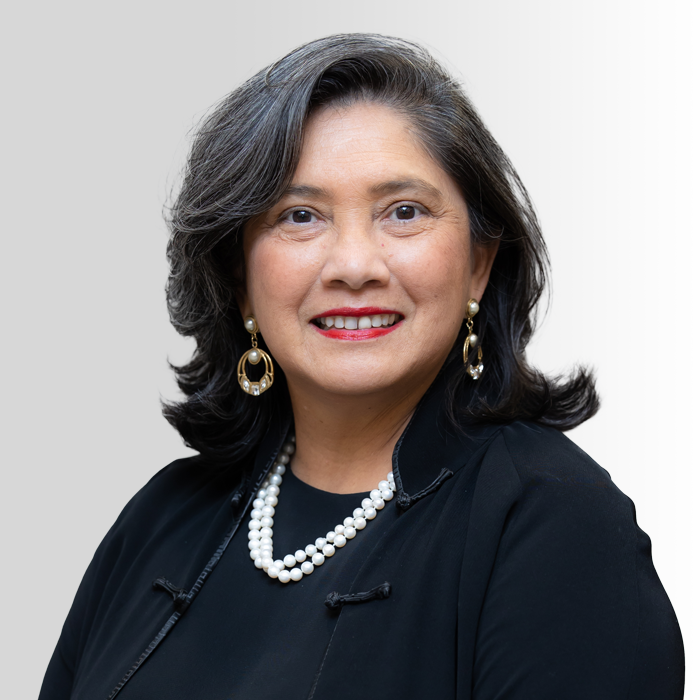
Siobhan Das
Chief Executive Officer, American Malaysian Chamber of Commerce (AMCHAM)Siobhan joined the American Malaysian Chamber of Commerce (AmCham Malaysia) as its executive director in 2016 and was promoted in 2020 to become the organisation’s first CEO in its 43-year history. She created an action-oriented policy platform at the chamber that is designed to address both the strategic concerns of American multinational companies and the tactical day-to-day challenges faced by operations on the ground. She works closely with business leaders and various stakeholders in the Malaysian and US governments to ensure that AmCham Malaysia fulfils its role as the voice of US businesses in Malaysia.
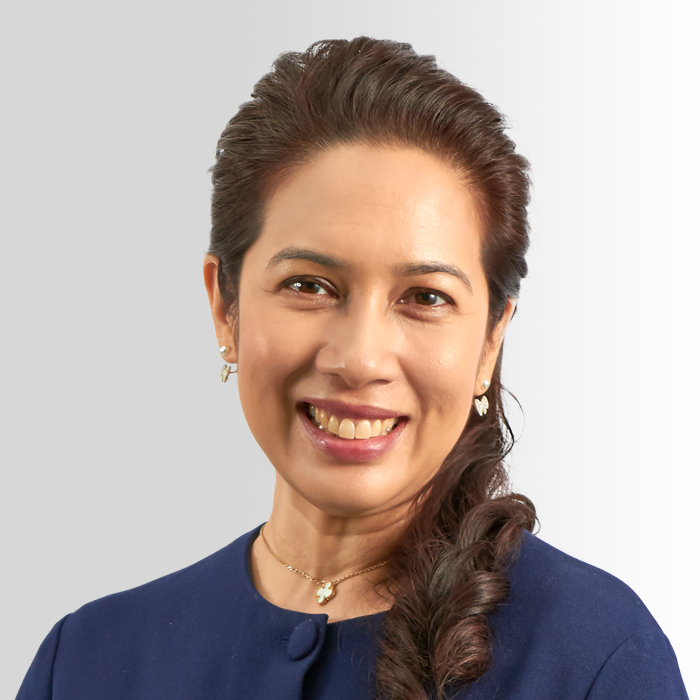
Prof Datin Seri Sunita Rajakumar
Chairman, Climate Governance MalaysiaDatin Seri Sunita is a professional independent director who is a strong advocate of the importance of governance in general and risk management in particular. She is chairman of Climate Governance Malaysia, which is the country chapter of the World Economic Forum’s Climate Governance Initiative. She sits on the boards of Dutch Lady Milk Industries, Petronas Chemicals, HSBC Malaysia, MCIS Insurance and Zurich General Insurance. She is also adjunct professor in climate governance and sustainability, Unitar International University.

Ushar Daniele
Independent journalistUshar is based in Kuala Lumpur, from where she covers Southeast Asia. As a producer and reporter for numerous media outlets, her work has appeared on Al Jazeera English, VICE News Tonight, CNN, South China Morning Post, Channel News Asia, Bloomberg, The New York Times and CNBC. When Ushar isn’t busy asking tough questions, you can find her camping out in the woods with her two dogs, Spank and Luna.
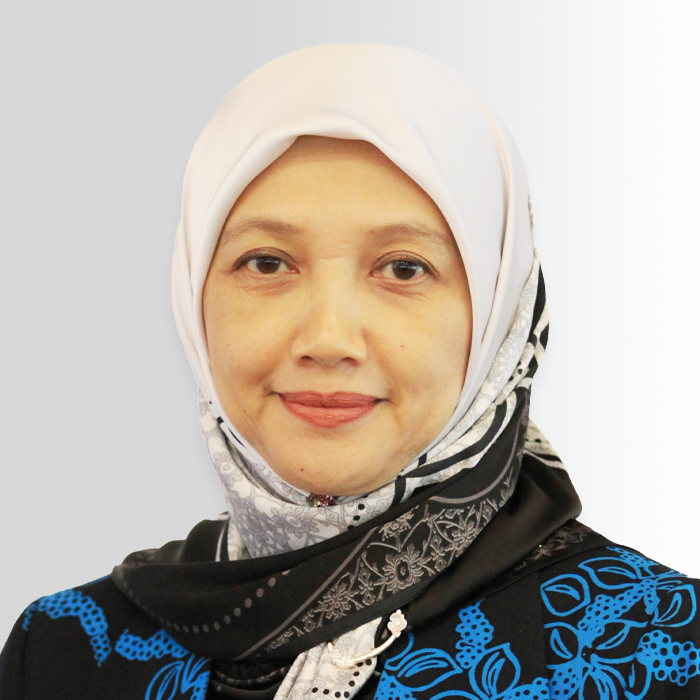
Datin Zaeidah Mohamed Esa
Director, Agriculture Division Ministry of EconomyDatin Zaeidah’s role involves reviewing and formulating policies and strategies for the medium- to long-term development of the nation’s agriculture sector. This includes monitoring the implementation of programmes and allocating budget for agriculture projects. She was involved in drafting the National Energy Policy launched in 2022 and participated in the oil and gas services’ equipment blueprint. One of her previous stints includes serving in the Privatisation Unit – better known as UKAS – as director of security and land development.
Tuesday, 24 October 2023
Malaysia’s long-term food security requires a comprehensive reimagining to better reflect its comparative strengths and abundance. By leveraging systems-based solutions grounded in intricate supply chains, interconnected trading networks and multilateral frameworks, Malaysia can put forward a “We Feed the World” narrative that better reflects its contribution towards global food security while ensuring its own. This session examines what is needed to drive this narrative forward, and how Malaysia can better fortify food security for the nation and across the globe.
As Malaysia confronts the challenges of a rapidly aging population and a diminishing workforce, it faces an urgent need to build a robust social infrastructure ecosystem. By establishing a cradle-to-grave care economy, Malaysia stands to benefit from early action that will reduce care burdens on women, sustain labour supply, bolster economic growth, while reducing pressure on social welfare systems. This session delves into the fundamentals for a more comprehensive vision of social protection – one where care services are included as a key pillar of economic opportunity and social support for families.
The global semiconductor supply chain is increasingly fraught with geostrategic considerations. Among others, home-shoring and friend-shoring initiatives; greater incentive and investment policies to deepen domestic capabilities; and the implementation of export controls of key technologies that threaten to bifurcate supply chains. This raises the question of how Malaysia’s semiconductor industry should react and position itself, given the country’s ambitions to grow the industry and to generate high-skilled employment opportunities. This session explores the opportunities and risks arising from geostrategic considerations and the feasibility of Malaysia moving into other areas of the value chain.
Malaysia’s wealth of biodiversity and natural resources presents a unique opportunity to mitigate climate change concerns while fostering equitable wealth generation for the people. By pursuing nature-based solutions aimed at restoring, protecting, and enhancing native ecosystems, the nature positive economy (NPE) model promises to spearhead mitigation strategies at the national and state levels. This session imagines a Malaysia which establishes itself as a leader in facilitating conservation financing through market-based approaches to harmonise economic growth and environmental preservation.
Partners



Event venue
Date: 24 October 2023
Time: 8:15 AM – 5:00 PM
Location: Hilton, Kuala Lumpur
Hall: Sentral Ballroom, level 6
For queries, please contact
Elise Tai (praxis@isis.org.my)


